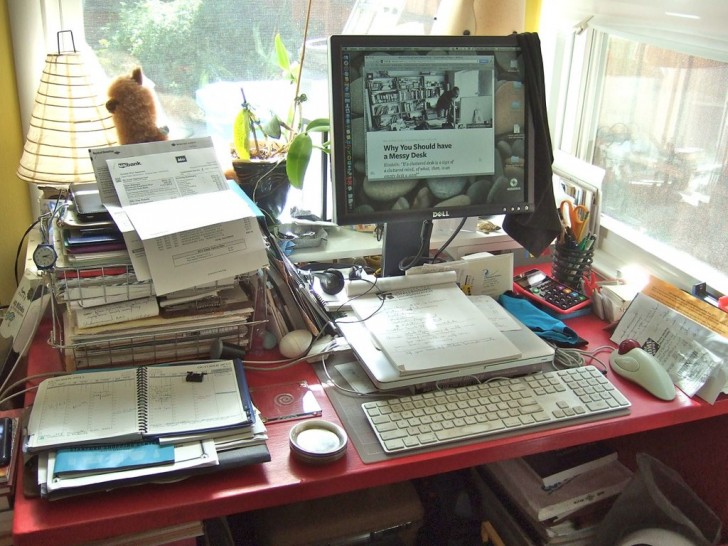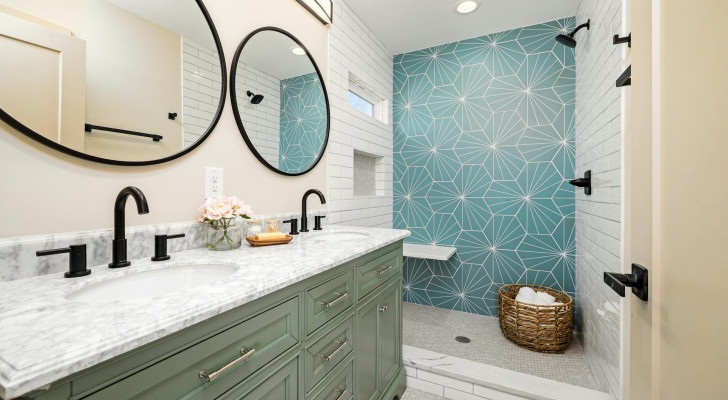Working from home: the rules to follow to be productive and some things not to do absolutely

Working from home is a daily reality of many people around the world, and although it involves a series of undeniable comforts, it also has some more insidious implications, especially as regards the flow of productivity that must be ensured and maintained during working hours. .
It is convenient not to have to wake up in time to get ready, eat, leave the house and reach the office, but it is also true that there are a thousand opportunities to get distracted that hinder the achievement of the same goals that governed office work. You have to take care of the house more, you have to organise an efficient workstation with everything you need to make up for the office equipment, there are probably a lot of stimuli at home and outside that make it difficult to concentrate on your duties, or you succumb to a sense of isolation that plagues the spirit.
It can therefore be useful to have a series of indications to follow to regulate one's smartworking activity, so as to achieve satisfactory productivity even without working in the office, and to find the right personal balance even in a situation that makes socialising more difficult.

The work station
The first thing to do is find a room or corner to be transformed into an office. Staying in bed or letting go on the sofa is extremely inviting but it is also the recipe for disaster. Better to invest in a comfortable chair to be placed wherever the desk is, even if this is obtained in some corner. Choose, where possible, bright environments and that can remain more isolated, so that the presence of other people in the house does not distract you too much. If natural light isn't enough, invest in comfortable lamps just for those who spend a lot of time in front of the PC.
There are those who create a study corner in the bedroom, some in the living room, some on the balcony enclosed as a veranda. The options are actually different, but it is always better to choose a place you can “leave” when you stop working.
Then help yourself by keeping the workstation in order, it is a rule that applies everywhere but never as in the place where you work. And don't forget to gratify yourself with some object or decoration that will cheer you up: an ornament, framed or hung photos, souvenirs that remind you of places and loved ones ... Anything you like works and evokes pleasant sensations!
Plan out your activities
Since we work in isolation, without being surrounded by colleagues and without having an environment around us that automatically reminds us of the various phases of the typical working day, it is necessary to establish an activity plan, with fixed hours. Staying at home when you are used to being in the office means not being able to rely on the structure that usually characterizes the days, so you need to find one. So do not give in to indolence: although it is normal to need to recharge and maybe it is convenient to stay a little longer in bed, set a fixed time to wake up, in order to take full advantage of the day.
Organizing a schedule also means prioritising everything you want to do besides work. Sometimes you think that, staying at home, you can then complete many chores, phone calls and tasks that relate precisely to the management of domestic life and not that of work. Then provide time slots for everything that is urgent, but otherwise leave the working hours separate from those of home life, making a list of everything you can and must do from day to day and every week, so to deal with it methodically and without forgetting anything. A notebook, an agenda, mobile phone apps with all possible alarms: there are a thousand different ways to help you keep the right rhythm and not forget anything without incurring unnecessary stress.
Breaks, movement and burnout
Reward yourself with scheduled breaks scattered throughout the day: whether it's to play with the dog, do some laundry, do some exercise, eat a snack, go and buy something in the supermarket near your home, breaks are needed to recharge. Small household chores are always an excellent excuse to unwind for a few minutes without really wasting time.
Also fight an excessive sedentary lifestyle by obtaining moments in which to move: those who work from home can find enormous benefit from following very light and really feasible fitness programs online (YouTube is full of ideas) or via the app. However, if you do not want to carve out 15 minutes to do yoga or Pilates, at least taking advantage of the phone calls to walk around the house will be the solution to stretch your legs a little.
Establishing a routine also means deciding that you will not work beyond a certain time: sometimes you tend to stay a little longer in front of the PC, to check emails or do something more, since you are home and maybe there's nothing else to do for that evening. If it comes to exceptional opportunities to buy time, maybe during the weekend, that's okay, but starting to do so often means subjecting the body to enormous stress, with consequences on the sleep-wake rhythm, energy levels and mood: it is the so-called burnout , which is a rather insidious form of exhaustion.

Don't forget to socialise
It can be easier to stay productive if you indulge in some social interaction with colleagues or even friends. It serves to avoid feeling overwhelmed by isolation: sharing a chat with someone is really important in order not to succumb to the depression that often comes from being isolated at home.
Then find the person with whom to exchange a few words when you feel a little lonely, when you want to comment on something seen on TV, read on social media. They are all small moments of release that help to relax the nerves. This obviously also applies to co-workers who are in the same conditions at home, with whom to share some links, make a short call, exchange nice comments: it promotes a sense of community at work even when you are separated, and improves a lot. the mood and the approach to work itself.
Take advantage of communication tools
Letting all communication happen by email when you can't see each other face to face with regular interlocutors sometimes gives a sense of impersonality that doesn't help cooperation. You won't need to start video calls every time, but there are tons of instant communication programs - including various business suites - that provide a thousand useful tools. Share audio, images, screenshots, or try to use all the means you have to replicate what happens in the office when you are all in the same room looking at the same screen.
There have also been studies that have proven that engaging interlocutors more dynamically is an effective way to promote the flow of productivity throughout the day. There are even those who thought of ordering food at the same time and then sharing the meal live among all colleagues via video call, somewhat replicating the situation that arose during a lunch break.
Doing all this also keeps the working relationship with colleagues and superiors alive and balanced, preventing someone from feeling left out just because they are isolated at home.
Supply
Those who are not used to bringing lunch from home must strive to find the times of the day or week in which to plan their nutrition: you cannot spend too many days altering the times in which to eat in an unbalanced way or eating badly (too little , unhealthy foods that do not help maintain the right energy during working hours). We must not forget breakfast, although sometimes it would be more inviting to stay a little longer in bed, nor should we succumb to compulsive snacks when stressed or bored.
So prepare your lunches in advance if you can, maybe keep thermos with tea or coffee ready on your desk, so you don't have to "work" in the stove even during your lunch break.
Look after your appearance
It seems futile but indulging in too much indolence, staying in pyjamas, thinning the showers, keeping your hair untidy for too long can turn out to be habits that ruin one's productivity. Feeling clean and tidy, wearing comfortable but presentable clothes, not only serves to make a better impression during videoconference meetings, but it really helps to get in the right mood to work properly.
Encourage concentration
As long as you work, keep your cell phone, tablet and personal computer away so as not to succumb to the temptation to check all notifications and end up in the black hole of distraction. If you use your PC to work, it might be useful to open a different account to use the operating system (or even just in the browser) only for work.
But since you're alone in the room, maybe it's time to help you get into the productivity flow with the right background music - there are so many different stages in your daily work, and browse music streaming apps to find genres and playlists. suitable for promoting concentration is a great resource. You could finally listen to music from the stereo without disturbing others or wearing headphones without the risk of not hearing calls or noticing the gestures of colleagues, since all the work notifications will arrive on the screen in front of you!
In short, with the right organization you can tackle smart working with the right attitude without compromising your productivity or the balance of home life.





